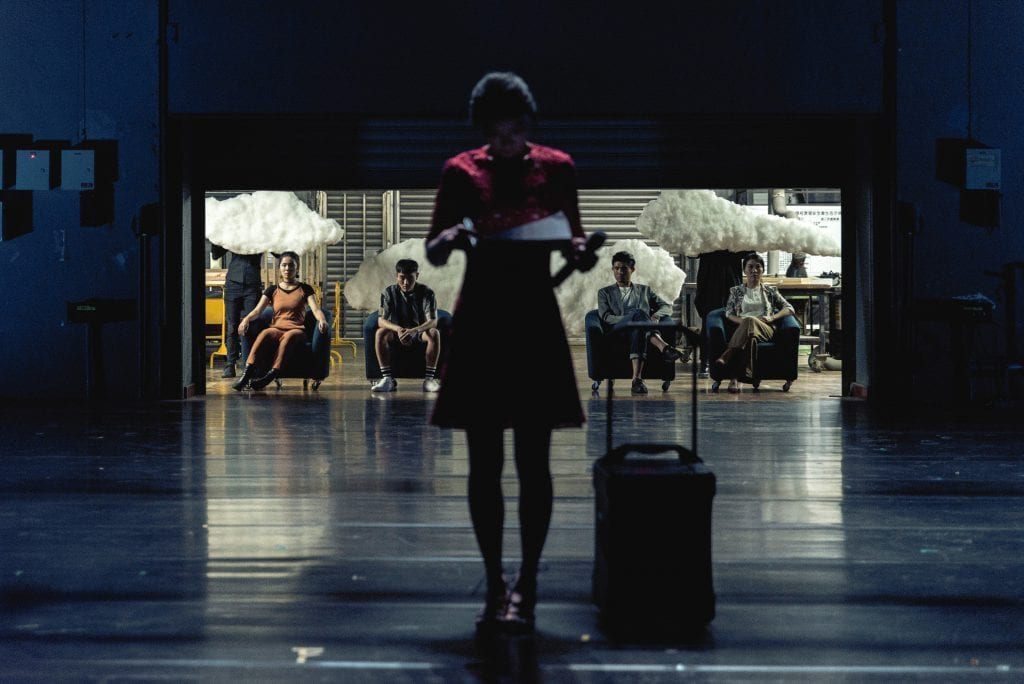 In Taiwanese company Co-coism’s Ever Never, five actors, seated in an aircraft, seamlessly wander from one identity, place, and era to another. The production takes inspiration from the director’s own experience of loss and travel, and derives from her realization that aeroplanes and airports had a particular affinity with remembrance and meditation.
In Taiwanese company Co-coism’s Ever Never, five actors, seated in an aircraft, seamlessly wander from one identity, place, and era to another. The production takes inspiration from the director’s own experience of loss and travel, and derives from her realization that aeroplanes and airports had a particular affinity with remembrance and meditation.
The space of the aeroplane becomes a car, a lake, a rehearsal room for a wedding. The five actors shed identities, and turn into passengers, families, friends, and lovers. The past is central to the play’s contemplative mood, which slowly regresses from adulthood and maturity towards childhood, birth, and death. In a dark room, a mother tells a story to her child, describing the scene they are living. In another, undetermined space, three actors seem to face a storm but turn out to be children on the verge of birth. The play’s abstract style also offers some beautiful moments of physical theatre: as a character struggles to express her grief, the entire cast starts miming the crying process. The encounters between passengers also give way to moments of social comedy, although the translation occasionally obscures some jokes.
Reflecting the protagonist’ transient personas, the set has an elegant makeshift quality. A long white piece of fabric suggests the alley of an aircraft, while chairs move around and a single oval window hangs from the ceiling.
Ever Never constantly maintains a lightness of touch which may keep the audience slightly at bay. However, this delicateness also gives us space to process the sense of loss, and the feelings of mourning and separation that inhabit the play.

